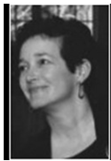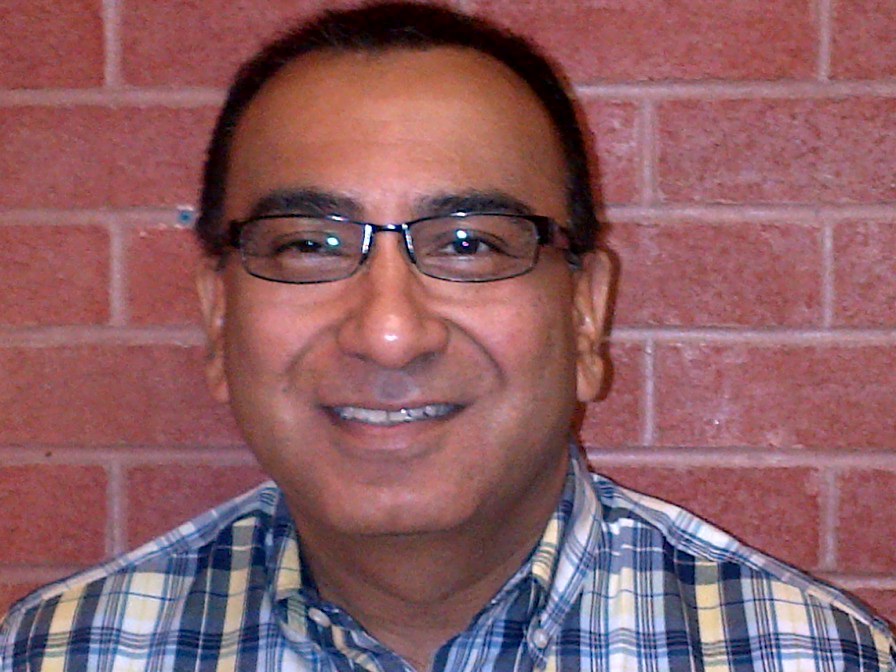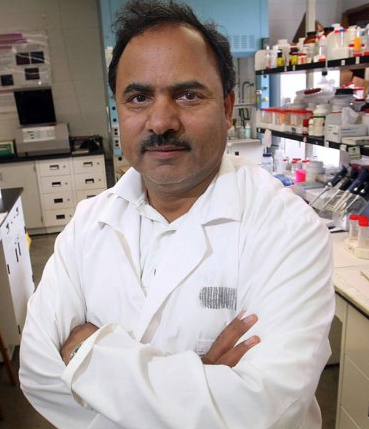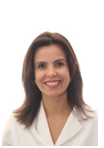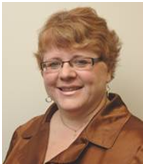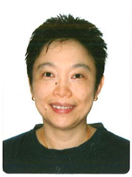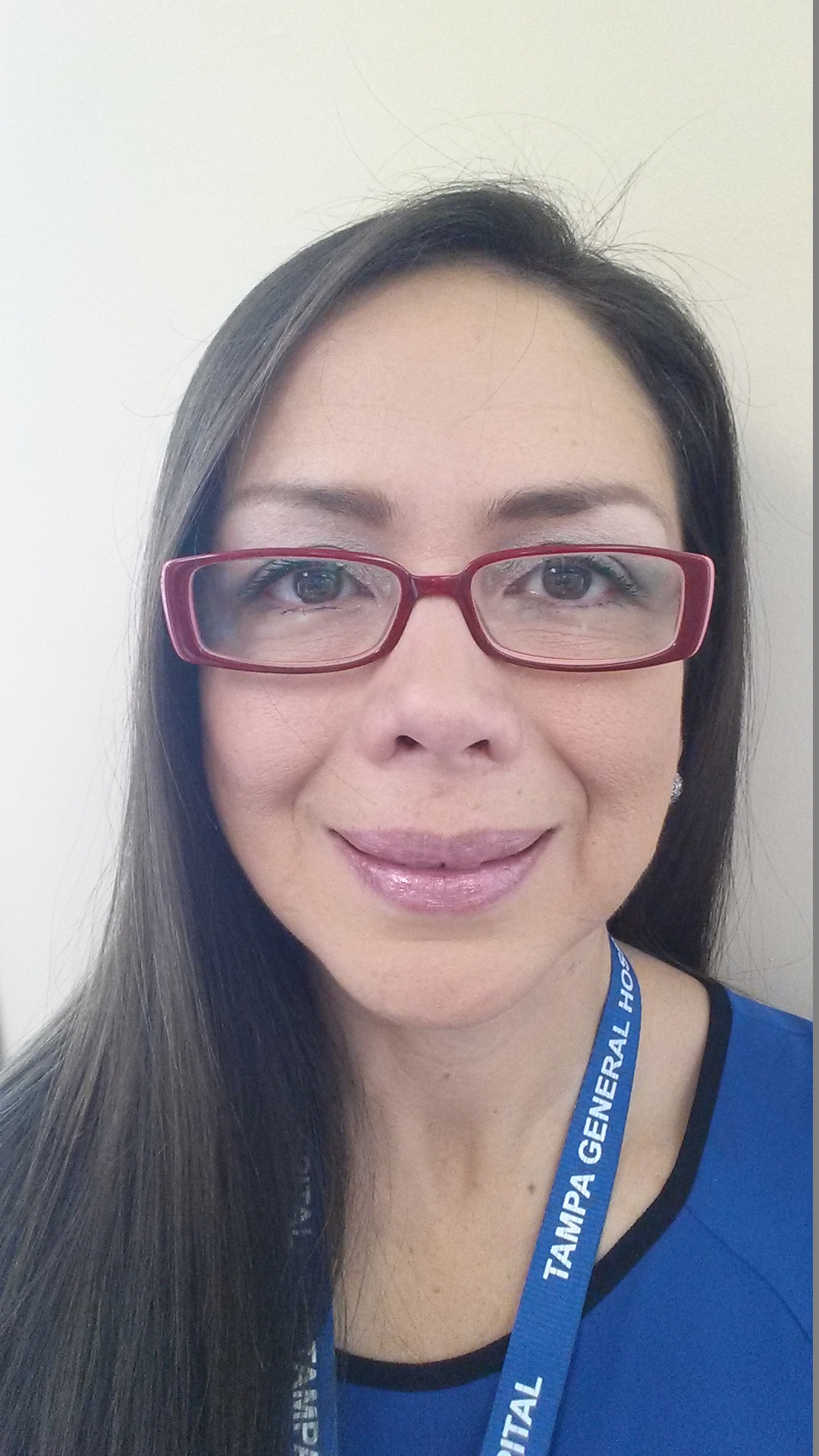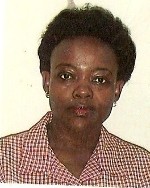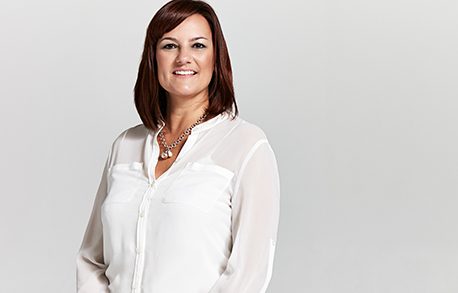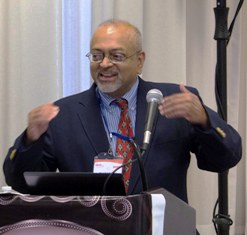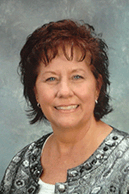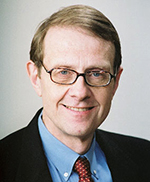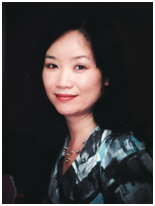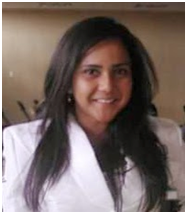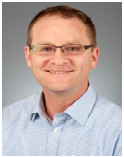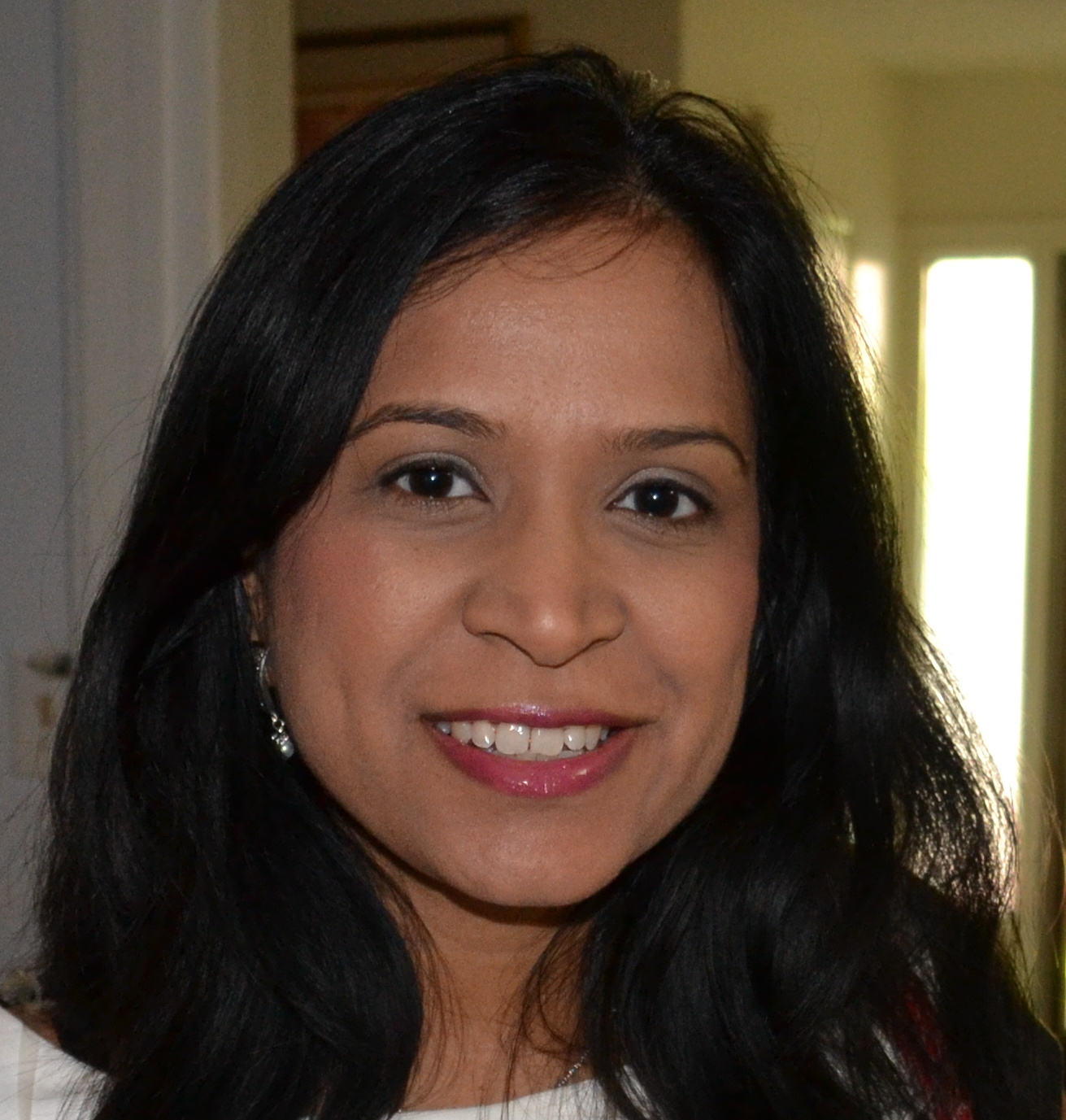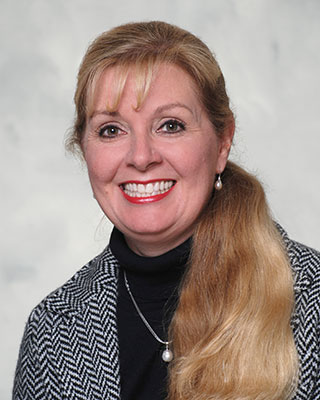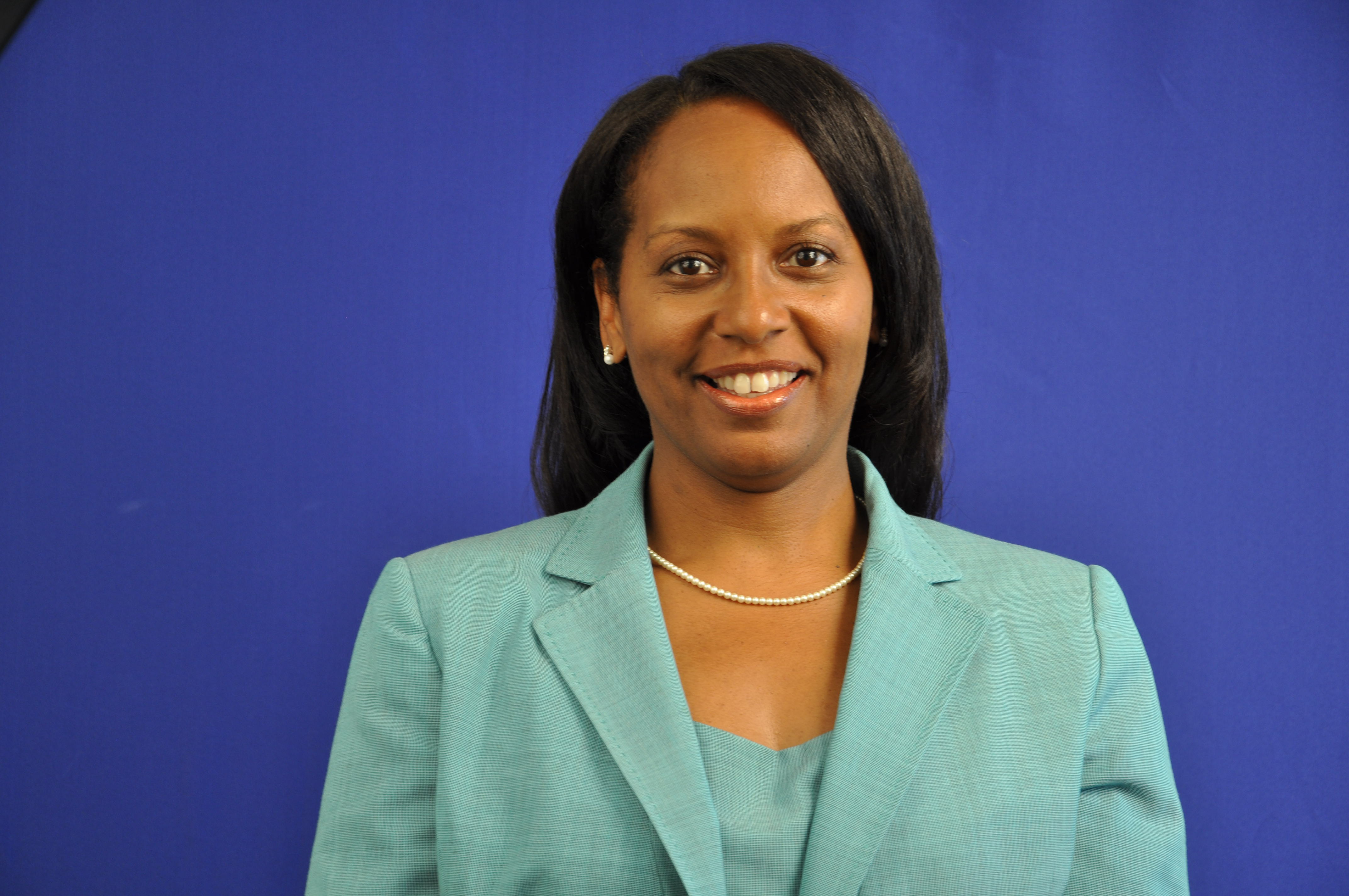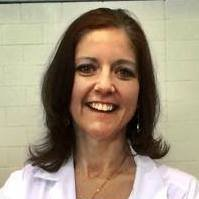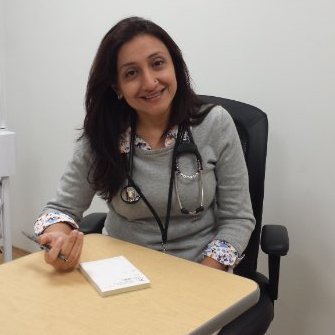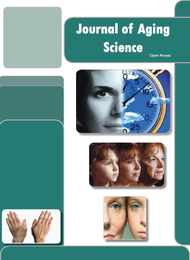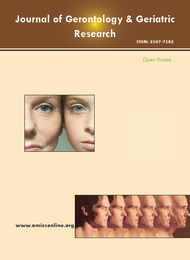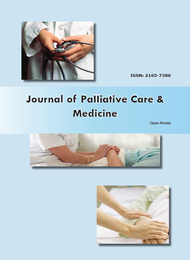Theme: Unlocking The Milestones to an Ageless Era
Geriatrics 2015
Geriatrics-2015 welcomes all the attendees, presenters and exhibitors from all over the world to Toronto, Canada. We are delighted to invite you all to attend the 2nd International Conference on Geriatrics & Gerontology which will be held in Toronto, Canada from August 24-26, 2015. Geriatrics-2015 conference is organized with the theme "Unlocking the Milestones to An Ageless Era" and mainly aims in bringing Geriatricians, Gerontologists, Doctors, Professors, Social workers, Palliative care specialists, Nurses, Health care administrators, Researchers and students from around the world under a single roof, where they discuss the research, achievements and advancements in the field of Geriatrics and Gerontology. This conference will continue with objectives of helping medical professionals in the geriatric field as well as general public to understand, empathize, and take prompt actions to help old people across the globe.
A New market report “Geriatric Care Services Market - Global Industry Analysis, Size, Share, Growth, Trends and Forecast, 2013 - 2019,” was valued at USD 560.4 billion in 2012 and is expected to grow at a CAGR of 5.9 % from 2013 to 2019, to reach an estimated value of USD 850.0 billion by 2019. Geriatrics-2015 is a scientific platform to meet fellow key decision makers all-around the Geriatrics and Gerontology, Academic Institutions making the conference a perfect platform to share experience, foster collaborations through the research talks & presentations to put forward many thought provoking strategies in Geriatrics making the Conference a perfect platform to share proficiency.
OMICS Group International provides an opportunistic environment and vibrant podium through these auspicious events to amplify these steps and meet the highest demand ever, by reflexive and cerebrative connections. Established in the year 2007, OMICS Group International has been progressively organizing scientific conferences across the globe, rendezvous which consist of various streams of scientific study to improve and accelerate discovery for a better tomorrow. The non-profit firm boasts about organizing an average of 300 international conferences per year which is supported by 400 open access journals and 30,000 Editorial Board Members. The number of reader views of the website has clocked 3.5 million and still counting. Lately around more than 1000 scientific associations of various fields from all over the world have shown interest in association with OMICS Group International to promote their research work.
The previous conference on Geriatrics-2014 which was held at Chicago, USA has explained "Improving Health and Health Care Services for the Elderly", gained so much of interest for eminent scientists all over the world in Geriatrics and Gerontology. Now it is the time for the 2nd International Conference on Geriatrics & Gerontology to address "Unlocking the Milestones to An Ageless Era".We promise to keep up with the quality and expectations bestowed upon us. We hope to see you soon at the Geriatrics-2015 international conference.
For more details please visit: http://www.conferenceseries.com/geriatrics-gerontology-ageing-biogerontology-pharmacotherapy.php
Gerontological nursing is the specialty of nursing pertaining to older adults. Gerontological nurses work in collaboration with older adults, their families, and communities to support healthy aging, maximum functioning, and quality of life. The term gerontological nursing, which replaced the term geriatric nursing in the 1970s, is seen as being more consistent with the specialty's broader focus on health and wellness, in addition to illness. Two societal drivers acting globally, Systemic ageism, Family structural dynamics. Universities , certification courses and journals in Nursing includes: Hartford Institute for Geriatric Nursing, Hartford’s consult site for tools and continuing education for older adult nurses (basic and advanced practice), Geriatric pain management, Canadian Association of Gerontological Nursing (CGNA), Journals, continuing education workshops, CNA certification, other Specialized curriculum in undergrad and graduate nursing education, National nursing organizations such as the American Nurses Credentialing Center, the Canadian Nurses Association offer certification in gerontological nursing. In order to be certified, the nurse must have a minimum academic preparation, experience as a gerontological nurse, and write a certification exam. Technology and connection in emerging the field on nursing includes :According to Skiba (2012) (basing her figures on the Pew Internet Project, 2012), Rapid technology and internet adoption from 2000 to 2012 – 80% increase in adult use of technology to communicate (social media, email, smart phone use, texting) , Age, education and income are the strongest positive predictors of internet use, Comparing 2000 and 2011 results (similar trajectories for cell phones and texting).For nursing homes establishment Market analysis of Geriatric nursing In 2012, according to data published by the Center of Disease Control (CDC) it has been estimated that nearly 95% nursing homes, 77% adult day care service centers, 78% home health agencies and 52% residential care communities were certified to participate in Medicaid. Furthermore, nearly 99% home health agencies, 100% hospice, and 96.5% nursing homes were Medicare certified.
Geriatric psychiatry, also known as geropsychiatry, psychogeriatrics or psychiatry of old age, is a subspecialty of psychiatry dealing with the study, prevention, and treatment of mental disorders in humans with old age.. Associations working for Geriatric Psychiatry includes: The American Association For Geriatric Psychiatry is the national organization representing health care providers specializing in late life mental disorders. The International Psychogeriatric Association is an international community of scientists and healthcare geriatric professionals working for mental health in aging. International Psychogeriatrics is the official journal of the International Psychogeriatric Association. Many fellowships in geriatric psychiatry exist. The American Journal of Geriatric Psychiatry is the official journal of the American Association for Geriatric Psychiatry (AAGP). The American Board of Psychiatry and Neurology and the American Osteopathic Board of Neurology and Psychiatry both issue a board certification in geriatric psychiatry. The American Association for Geriatric Psychiatry (AAGP) is the only national association that has products, activities and publications. Market analysis by 2030, using the managed care ratios and assuming no increase in prevalence will need more than 4,700 geropsychiatrists and more than 21,000 nonphysician mental health providers. A study was made of the Emergency Department records of 49 elderly (65 years old or older) and 49 middle-aged (40-64 years old) patients seen in an urban hospital's psychiatric emergency service. These results raise important issues concerning the unique psychosocial characteristics and psychiatric treatment needs of elderly patients. This applies particularly to the emergency-department medical clearance of elderly patients with symptoms of organic brain syndrome.
Geriatric care management (also known as "elder care management", "senior health care management" and "professional care management") is the process of planning and coordinating care of the elderly and others with physical and/or mental impairments to meet their long term care needs, improve their quality of life, and maintain their independence for as long as possible. Geriatric care managers accomplish this by combining a working knowledge of health and psychology, human development, family dynamics, public and private resources and funding sources, while advocating for their clients throughout the continuum of care. Top universities offering Geriatric Care and Management are Johns Hopkins University in Baltimore, University of Michigan - Ann Arbor and University of Pennsylvania in Philadelphia. The Douglas Mental Health University Institute (formerly the Douglas Hospital and originally the Protestant Hospital for the Insane) is a Canadian psychiatric hospital located in the borough of Verdun in the city of Montreal, Quebec. It is also a teaching hospital affiliated with McGill University. The Schafer Consulting Start-Up team provides specialized behavioral health market research that generates reliable data suitable for starting or expanding psychiatric programs. The Schafer Consulting Start-Up team provides specialized behavioral health market research that generates reliable data suitable for starting or expanding psychiatric programs. Global Elderly and Disabled Assistive market to grow at a CAGR of 5.59 percent over the period 2014-2019. Inpatient geriatric psychiatry There are two geriatric units at Mount St. Joseph Hospital. “One South” is the 16 bed Geriatric Psychiatry Unit (GPU) for older adults with psychiatric illness such as depression, schizophrenia, and bipolar disorder or dementia with psychosocial and behavioral symptoms. “Four East” is a 22 bed Geriatric Medicine Reactivation Unit that provides sub-acute medical care to older adults.
Geriatric nutrition deals with the health of the individual over 65 years of age. The National Institute on Aging has rightly judged that in the area of geriatrics, there is a triad, nutrition health-aging, which cannot be separated and are parts of an integral whole. Malnutrition is the term used to describe not only pathologic states that arise from a dietary deficiency of essential nutrients or caloric excess, but also any significant deviation in dietary pattern that may result in an undesirable risk factor or that can be detected by physical examination, or biochemical or physiologic tests. Physiological changes take place with increasing age. Hence, the nutritional necessities also alter accordingly. During adulthood, energy requirements are less as the Basal Metabolic Rate (BMR) starts decreasing from the age of 35. The prerequisite of energy reduces at the rate of about 5% to 20% in between the age of 35 to 70 years. To cater to this change in requirement calorie intake should be reduced to maintain ideal body weight as per age and body frame. While protein, minerals and vitamins requirements remain unchanged, higher intake of minerals and vitamins especially calcium, iron and B complex vitamins may help. These aid the processes of digestion, absorption and utilization as they do not function at an optimal level. Loss of lean body mass (LBM) starts in the 20s typically with a 0.3 kg loss each year and which is usually offset by an increase in body fat that continues atleast until 65-70 years of age. The Nine “Ds” of without nutritional food and Weight Loss in the Elderly includes: Disease, Depression, Drugs, Dementia, Dysphagia, Dentition, Dysgeusia, Dysfunction, and Diarrhea/Malabortion. Coming to Research on geriatrtic nutrition Washington University geriatric specialists are heavily involved in research and clinical trials to increase our understanding of aging and caring for older adults. The Division has a commitment to reduce frailty in older adults. There are some funding associations in geriatric nutrition like Administration on Aging (AoA) Nutrition Service, Congregate Nutrition Services, ACL funded Resource Centers, Federal Funding. Universities offering courses on geriatric nutrition are Ohio State University Extension, University of Idaho Extension, University of California Cooperative Extension, Florida International University.
Palliative care is an interdisciplinary medical specialty that focuses on preventing and relieving suffering and on supporting the best possible quality of life for patients and their families facing serious illness. The primary tenets of palliative care are symptom management; Palliative care aims to relieve suffering in all stages of disease and is not limited to end of life care. Within an integrated model of medical care, palliative care is provided at the same time as curative or life-prolonging treatments. Regarding market research on Geriatric palliative care Clinicians often fail to recognize the extent of a patient's depression until too late in the course of the disease. As an example, in a survey of 1046 consecutive hospice patients, only 10 percent were prescribed antidepressants at some point during hospice care. Patients prescribed tricyclic antidepressants were nearly always under dosed and three-fourths of those started on antidepressants died within two weeks. Rationale for palliative care — The aging of the population, success of high technology medicine at prolonging the lives of those who remain seriously ill, and the increasingly fragmented medical system make it difficult for clinicians to provide the full range of services required by patients with serious illness and their families . A multicenter study of over 9000 seriously ill patients found that pain, dyspnea, anxiety, and depression were common and distressing symptoms among seriously ill patients hospitalized in US tertiary care centers. Related to fundings. The NPCRC continues to work towards catalyzing NIH funding for palliative care research. The NPCRC partnered with the National Institute on Aging (NIA) and the Icahn School of Medicine at Mount Sinai to host at NIA, a conference to establish research priorities in geriatric palliative care in order to help guide NIA funding in this area.
Geriatric physical therapy was defined as a medical specialty in 1989 and covers a broad area of concerns regarding people as they continue the process of aging, although it commonly focuses on older adults. Among the specific diseases and conditions that might affect older adults which can be improved with physical therapy are arthritis, osteoarthritis, stroke, Parkinson’s disease, cancer, amputations, urinary and fecal incontinence, and cardiac and pulmonary diseases. Conditions such as Alzheimer’s disease, dementia’s, coordination and balance disorders, joint replacements, hip fractures, functional limitations related to mobility, orthopedic or sports injuries can also be improved through geriatric physical therapy. Physical Therapists Industry, Operators in this industry include independent health practitioners primarily engaged in outpatient services. These services include administering medically prescribed rehabilitation for patients suffering from injuries or muscle, nerve, joint and bone disease; Career in physical therapy: The BLS reported that exercise physiologists had a median salary of $44,770 in May 2012. This career field is expected to grow by 9%, which is about average, from 2012 to 2022, according to the BLS. Best of Top Ranking Colleges in the USA for Physical Therapy includes University of Southern California, Los Angeles, CA; University of Pittsburgh, Pittsburgh, PA; Washington University in St. Louis, St. Louis, MO; University of Delaware, Newark, DE; US Army-Baylor University, Fort Sam Houston, TX; University of Iowa, Iowa City, IA; Arcadia University, Glenside, PA; MGH Institute of Health Professions, Boston, MA; Northwestern University, Chicago, IL; University of Miami, Coral Gables, FL. In market analysis Physical therapy accounts for an estimated $26.6 billion, or approximately 90%, of all outpatient rehabilitation spending. Highly fragmented with largest 50 competitors comprising less than 25% of the market. POPTs (PHYSICIAN-OWNED PHYSICAL THERAPY PRACTICES) provide an attractive opportunity for physician groups to provide their patients with greater convenience, improved outcomes, and continuity of care by offering therapy in their office setting.
Geriatric Physician Experts Meeting
Geriatric Physician Experts Meeting in this the AGS Annual Scientific Meeting is the premier educational event in geriatrics, providing the latest information on clinical care, research on aging, and innovative models of care delivery. More than 2,000 physicians, nurses, pharmacists, physician assistants, social workers, long-term care and managed care providers, healthcare administrators, American Geriatrics Society Founded in 1942, the American Geriatrics Society (AGS) is a nationwide, not-for-profit society of geriatrics healthcare professionals dedicated to improving the health, independence, and quality of life of older people. Its more than 6,200 members include geriatricians, geriatric nurses, social workers, family practitioners, physician assistants, pharmacists, and internists. The Society provides leadership to healthcare professionals, policymakers, and the public by implementing and advocating for programs in patient care, research, professional and public education, and public policy. As more than 2,000 geriatrics experts prepare to converge just outside the nation’s capital to advance quality care for older adults, they’ll also toast leadership in its own regard: Steven R. Counsell, MD, AGSF, a 27-year member of the American Geriatrics Society (AGS) will become its 62nd president at the start of the 2015. UPMC and the University of Pittsburgh were well-represented at the recent American Association for Geriatric Psychiatry 2015 Annual Meeting in New Orleans. UPMC and the Department of Psychiatry hosted an alumni and friends cocktail reception during the meeting. United Nations plan to reduce premature mortality would render the over-70s ‘second-class citizens’, academics tell the Lancet. A plan to reduce deaths from a range of diseases is “highly unethical” because it discriminates against people aged 70 and over, according to leading medical experts. The American Association of Pharmaceutical Scientists (AAPS) is starting a new Focus Group called “Patient centric drug development, drug product design, and manufacturing” which will address the needs of the targeted patients within a development program taking into account their specific characteristics in terms of age, physiology, morbidity/co-morbidity, functional impairments, co-medications, etc. The Geriatric Medicine Society has published a critical commentary titled: “Design of pharmaceutical products to meet future patient needs requires modification of current development paradigms and business models” in the Z. Gerontol Geriat The commentary summarizes the outcomes of several multidisciplinary discussions and is intended to stimulate further discussions. n February GBI Research published a report called “Geriatric Medicine Development - Carving Out New Opportunities to Treat Age-Related Diseases” focusing on the challenges and opportunities for drug product development in the aging society. European Medicines Agency (EMA) released its “Proposal for the development of a points to consider for baseline characteristics of frailty status” on May 30, 2013. The development of the document “Points to consider” should cover three main areas, physical frailty, comorbidity status and mental frailty
A geriatric physician, also called a geriatrician, is a medical doctor who specializes in the diagnosis, treatment, and prevention of disease and disability in older adults. Geriatric physicians are primary care doctors who are specially trained in the aging process. Due to improvements in medical care and nutrition and advances in technology, the number of people in the United States who are over the age of 65 is larger than ever before. This growing population often has special medical concerns. The Division of Clinical Research of Geriatric Physicians provides the infrastructure and resources for conducting clinical research. It includes controlled trials and epidemiological studies. This division is home to an interdisciplinary group of investigators which include basic scientists, clinicians, epidemiologists, sociologists, health services researchers and statisticians. The interdisciplinary researchers collaborate to develop funded clinical research programs to prevent and rehabilitate physical disability associated with aging. Universities offering Geriatric Physicians courses are University of Miami Health System is home to 1,200 of the nation’s top physicians, representing more than 100 specialties across the health care spectrum.Harvard University , University of Michiga, Yale University , Johns Hopkins University , Duke University . Market analysis regarding Geriatric Physicians show that Numerous studies have repeatedly confirmed the increasing incidence of mental illness among the aging population. The proportion of the population over age 65 will increase from 12.4% of the U.S. population in 2000 to 20% by the year 2030 (U.S. Census Bureau, 2000). During the same time period, the number of older adults with mental illness is expected to double to 15 million (Jeste et. al., 1999).
Geriatric dentistry or geriodontics is the delivery of dental care to older adults involving the diagnosis, prevention, and treatment of problems associated with normal aging and age-related diseases as part of an interdisciplinary team with other health care professionals. keywords used in Geriatric Dental Care as follows like Dental extraction. Tooth filling ,Root canal therapy , Root end surgery, Scaling and root planing, Teeth cleaning, Dental bonding, Tooth polishing, Tooth bleaching, Socket preservation, Dental implant. Geriatric Dental Care Organisations includes like American Association of Orthodontists, British Dental Association, British Dental Health Foundation, British Orthodontic Society, Canadian Association of Orthodontists, Dental Technologists Association, National Health Service, Orthodontic National Group Orthodontic Technicians Association, General Dental Council. Research studies on geriatric dental care includes Endodontics, Oral and maxillofacial pathology, Oral and maxillofacial radiology, Oral and maxillofacial surgery, Orthodontics and dentofacial orthopedics, Pediatric dentistry, Periodontics, Prosthodontics, Dental public health, Cosmetic dentistry, Dental implantology, Geriatric dentistry, Restorative dentistry, Forensic odontology, Dental traumatology, Holistic dentistry. Regarding market scenario Therefore retention of teeth can have an impressive value on the overall dental, physical and mental health of an elderly individual. This review is based on a Pub Med data base search published in the period from 1990 to 2010 in various dental journals. The World Health Organization (WHO) documents that although the global population is growing at a rate of 17% annually, the aged population is galloping at a rate of 30% which implies that people over 60 years of age are outrunning young children below 15 years of age. List of Top Schools for Dental Hygiene/Hygienist includes University of Louisville, University of Pittsburg, and University of Southern California.
Gerontology is the study of the social, psychological, cognitive and biological aspects of aging. It is distinguished from geriatrics, which is the branch of medicine that specializes in the treatment of existing disease in older adults. Gerontologists view aging in terms of four distinct processes: chronological aging, biological aging, psychological aging, and social aging. Biogerontology is the sub-field of gerontology concerned with the biological aging process, its evolutionary origins, and potential means to intervene in the process. It involves interdisciplinary research on biological aging's causes, effects, and mechanisms. Biological theories of aging include the free radical theory of aging. The DNA Damage Theory of Aging, Wear and tear and General imbalance. Top universities offering Gerontology are Brigham Young University, California State University – Fullerton, Georgia State University, San Diego State University, University of Georgia, University of Maryland - Baltimore County, University of North Carolina at Greensboro, University of Southern California, Virginia Commonwealth University and Virginia Common wealth University. A research study on gerontology is a rich, diverse field with research opportunities for both students and professionals. Gerontology is generally split between two focuses: biogerontology and social gerontology. Both focuses provide unique research topics for gerontologists to study. Because gerontology is a relatively new field, research results are just beginning to impact the field. Researchers are looking at new ways to monitor aging data, and apply it to aging discoveries. For example, researchers have studied how and when older adults fall, and have applied it to fall prevention programs. Other researchers examine aging in other species and compare it to human aging. Research is also conducted on possible treatments for age-related diseases.
Depressive symptoms are common in older adults. A majority will be seen in primary care. The aim of elderly primary care was to study the prevalence of and to explore factors associated with depressive symptoms in elderly primary care patients. In consecutive patients aged 60 years and older attending a Swedish primary care center between February and December of 2003, depressive symptoms were identified as ≥ 13 points on the Montgomery-Asberg Depression Rating Scale–Self-Rated version (MADRS-S). Somatic symptoms measured according to PRIME-MD, age, socioeconomic status, gender, somatic diagnoses, and medication were analyzed in relation to presence of depressive symptoms. Research studies revealed that Forty-six of 302 patients (15%) rated themselves in the depressed range. There were no differences between depressed and non depressed patients concerning socioeconomic status, other illnesses, or medication except for use of sedatives/hypnotics being more common (OR = 2.7, 95% CI = 1.3 to 5.6) in depressed patients. Patients in the group scoring ≥ 13 on the MADRS-S were more likely to have become widowed during the last year (OR = 6.0, 95% CI = 1.7 to 20.8) or to have indicated significant life events (OR = 4.3, 95% CI = 2.0 to 9.0), but were less likely to report having leisure time activities (OR = 0.2, 95% CI = 0.08 to 0.41) or perception of good health (OR = 0.1, 95% CI = 0.05 to 0.3). Patients being treated for depression did not have increased depression scores (OR = 1.4, 95% CI = 0.66 to 3.1).Top universities offering courses in Elderly Primary Care are University of Washington , University of North Carolina—​Chapel Hill , University of California—​San Francisco , University of Nebraska Medical Center , Oregon Health and Science University, University of Michigan—​Ann Arbor , University of California—​Los Angeles (Geffen) . Prevention of Suicide in Primary Care Elderly: Collaborative Trial (PROSPECT) aims to prevent suicide among older primary care patients by reducing suicidal ideation and depression. It also aims to reduce their risk of death. The intervention components are (1) recognition of depression and suicidal ideation by primary care physicians, (2) application of a treatment algorithm for geriatric depression in the primary care setting, and (3) treatment management by health specialists.
Geriatric depression and treatment
Geriatric depression is a mental and emotional disorder affecting senior citizens. Feelings of sadness and occasional “blue” moods are normal. However, lasting depression is not a typical part of aging. Causes of Geriatric Depression: There is no single cause of depression in any age group. Some researchers indicate that there could be a genetic link to the disease. However, biological, social, and psychological factors all play a role in depression in the elderly. Diagnosis of Geriatric Depression Proper diagnosis and treatment of geriatric depression can be difficult. The elderly’s first point of contact is typically their regular doctor. If they are in an assisted living facility, care workers may notice the symptoms of depression. Multidisciplinary approaches to depression treatment Medical illness increase the risk of depression 95 and depression increases the risk of medical illness. The frequently bidirectional relationship between somatic illness and depression necessitates attention to both somatic and psychiatric issues, in order to break potentially vicious cycles of psychiatric illness predisposing to somatic illness, and vice versa. Non-psychiatric health care practitioners need to incorporate diagnosis and treatment of depression into their routine practice, while psychiatrists to a greater degree need to address somatic issues. Increased collaboration among health care practitioners is likely to improve health care on all levels. University Hospital Limerick, , Leiden University Medical Center, University of Groningen, Netherlands Institute of Health Services Research and Department of Public Health and Primary Care are some of universities offering course on Geriatric depression and treatment.
Geriatric medicine is a specialty that focuses on health care of elderly people. It aims to promote health by preventing and treating diseases and disabilities in older adults. . The term geriatrics comes from the GreekγÎρων geron meaning "old man", and ιατρÏŒς iatros meaning "healer". However, geriatrics is sometimes called medical gerontology. Some of the prominent players in geriatric medicines market include Geri-Care pharmaceuticals, Nausicaa Medical, Geriatric & Medical Companies, Inc., Nutricap Labs, UAS Laboratories and others. This research report analyzes this market depending on its market segments, major geographies, and current market trends. Geriatric Medicine Development - Carving out New Opportunities to Treat Age-related Diseases research believes that the development of age-appropriate formulations and doses could allow for smarter prescriptions of approved drugs, such as anti-coagulants, anti-diabetic agents, antipsychotics and analgesics in older people. Additionally, new opportunities exist for companies to develop medicines for age-related diseases, including cognitive impairment, sarcopenia and neurodegenerative diseases. The strategy states that the Agency will ensure that the needs of the ageing population in the EU are taken into account in the development and evaluation of new medicines by building on its existing activities. In particular, the Agency aims to: ensure that the medicines used by older people are of high quality and are studied appropriately in the older population, both before and after authorization; improve the availability of information for older people on the use of medicines. The research programmes in geriatric medicine have their main bases in three different hospitals: Royal Infirmary of Edinburgh, Western General Hospital and Borders General Hospital. University of Sheffield, Bangor University, The University of Sydney, King's College London and University of London are the list of universities offering courses in geriatric medicine.
Clinical Geriatrics relating to or based on work done with real patients : of or relating to the medical treatment that is given to patients in hospitals, clinics, etc. Geriatric Clinical Simulation at the University of North Carolina at Chapel Hill. The purpose of the Center is to disseminate innovative, evidence-based clinical simulations involving older adults, focusing on the educational needs of registered nurses, licensed practical nurses and nursing assistants. The overall goal of this clinical guideline is to improve clinical care of adults 65 years and older through prevention and treatment of delirium in the postoperative setting. The recommendations are made based on studies that included both surgical and nonsurgical patient cohorts. The specific aims addressed by the guideline include (1) the nonpharmacologic and pharmacologic interventions that should be implemented perioperatively for the prevention (ie, before delirium occurs) of postoperative delirium, and (2) the nonpharmacologic and pharmacologic interventions that should be implemented perioperatively for treatment (ie, once delirium has occurred) of postoperative delirium.Simulations cover scenarios ranging from acute exacerbations of chronic conditions to sentinel events, such as falls. Clinical practice guidelines and older adults Boyd CM, Darer J, Boult C, Fried LP, Boult L, Wu AW. Clinical practice guidelines and quality of care for older patients with multiple comorbid diseases: implications for pay for performance. JAMA. 2005;294(6):716-724.Boyd and colleagues reviewed clinical practice guidelines (CPGs) for diseases common in older adults, and evaluated implications of applying recommendations from these CPGs to older adults with multiple morbidities. Their review suggests that adhering to current CPGs in caring for an older person with several co-morbidities may have undesirable effects. National Guideline Clearinghouse This compilation of clinical practice guidelines is made available by the Agency for Healthcare Research and Quality. AHRQ Effective Health Care Program The Agency for Healthcare Research and Quality maintains a Web site with a variety of useful resources, including guidelines, literature reviews and comparative effectiveness reviews. The Hospital Elder Life Program (HELP) is a comprehensive program of care for hospitalized older patients designed to prevent delirium and functional decline.
Gerontologists look at the social, physical, and psychological aspects of aging to gain insight into the aging process. According to “101 Careers in Gerontology,” by C. Joanne Grabinski, gerontologists “work with, for, and on behalf of the growing population of elders in a wide variety of settings.” Gerontology is a multi-disciplinary field that draws from the knowledge of many professionals to provide expert care and advice to people as they grow older. Psychological changes that accompany physical changes might lead to mental disorders, such as depression. These mental disorders contribute to a loss of interest in socializing and finding meaningful hobbies or volunteer activities. In effect, aging causes a seismic shift in how individuals view their lives. The field of Gerontology exists to understand and help deal with these changes by studying both the physical and mental aspects of aging.lls are a serious public health issue for Montanans! Did you know that this year – and every year, one in three adults aged 65 or over will fall, but less than half will talk to their health care providers about it? Among older adults, falls are the leading cause of both fatal and nonfatal injuries. Twenty to 30 percent of people who fall suffer moderate to severe injuries such as lacerations, hip fractures or head traumas. These injuries can make it hard to get around or live independently and even increase the risk of early death. In April 2009 a group of experts from the industry and academia met in Frankfurt to discuss the implications of the demographic changes of the society on drug therapy. As a result of this meeting a “Gerontology Medicines Initiative” formed with the objective the thoroughly review the various aspects of geriatric drug therapy and summarize the results in a White Paper. Social gerontology “Never judge a book by its cover” is one of the first idioms we learn, and it happens to be the basis of social gerontology, a field of study that dismantles the social constructs society builds around aging.
To share your views and research, please click here to register for the Conference.
To Collaborate Scientific Professionals around the World
| Conference Date | August 24-26, 2015 | ||
| Sponsors & Exhibitors |
|
||
| Speaker Opportunity Closed | Day 1 | Day 2 | Day 3 |
| Poster Opportunity Closed | Click Here to View | ||
Useful Links
Special Issues
All accepted abstracts will be published in respective Our International Journals.
- Journal of Gerontology & Geriatric Research
- Journal of Palliative Care & Medicine
- Journal of Aging Science
Abstracts will be provided with Digital Object Identifier by







